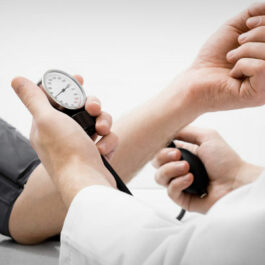
Cardiovascular Risk Management Program
You must be rostered to a primary care physician of the Plantagenet Family Health Team to access the Cardiovascular Risk Management Program.
Heart health depends on several modifiable risk factors and the Plantagenet family health team wants to help you take your heart health in hand because it is never too late to act!
What are the risk factors?
- High blood pressure
- Elevated cholesterol
- Smoking ( active link )
- Diabetes ( active link )
- Abdominal obesity
- Insufficient physical activity
Hypertension, one of the cardiovascular risk factors also known as high blood pressure, affects one in five Canadians and is often called the silent killer because you may not know it is there. The Plantagenet Family Health Team has developed a cardiovascular risk management program based on best practice guidelines that provides clients with the tools to manage or prevent high blood pressure. By identifying and providing clients with the skills necessary to manage their risk factors and all other risk factors such as diabetes, high cholesterol, smoking, clients will be able to reduce the risk of developing further cardiovascular complications.
Know your numbers when it comes to your blood pressure:
<140/90 – Normal Range
<130/80 – Normal range for clients with diabetes or kidney disease
<150/90 – Normal range for people 80 years of age and over
High cholesterol depends on genetics or poor diet or a combination of both. Your health care provider can determine your cholesterol levels by doing a blood test. If your “bad” cholesterol is high, your doctor will suggest to meet with a dietitian ( active link ) to improve your diet. Medication may also be recommended.
Smoking cessation happens to be one of the best actions you can do for your health. See our smoking cessation program. ( active link )
Diabetes is a disease that prevents the body to properly use sugar. This increases the blood sugar. Our diabetes program ( active link ) will help for the screening and treatment of diabetes.
Abdominal obesity is a risk factor for heart disease. Good nutrition and exercise are important in order to lose weight. Your health care providers can referred you to the dietitian who will guide you with weight loss. ( active link )
Where do you find yourself?
With the help of a tape measure, measure your waist circumference halfway between the top of your hipbone and the bottom of your ribcage, without sucking in your abdomen.
| Waist Circumference Measurement | Risk of suffering from CVD and Diabetes | |
| Normal Range of Waistline | Men: less than 94 cm (37 in)
Women: less than à 80 cm (32 in) |
Least |
| Abdominal Heaviness | Men: between 94 and 102 cm (37 and 40 in)
Women: between 80 and 88 cm (32 and 35 in) |
Increased |
| Abdominal Obesity | Men: more than or equal to 102 cm (40 in)
Women: more than or equal to 88 cm (35 in) |
High |
Insufficient physical activity plays a big role in the health of your heart and in maintaining a healthy weight.
See the Public Health Agency for Canada for recommendations by age group:
Children 5-11 years old
http://www.phac-aspc.gc.ca/hp-ps/hl-mvs/pa-ap/05paap-eng.php
Youth 12-17 years old
http://www.phac-aspc.gc.ca/hp-ps/hl-mvs/pa-ap/06paap-eng.php
Adults 18-64 years old
http://www.phac-aspc.gc.ca/hp-ps/hl-mvs/pa-ap/07paap-eng.php
Older Adults 65 years old and older
http://www.phac-aspc.gc.ca/hp-ps/hl-mvs/pa-ap/08paap-eng.php
The program offers:
- Blood pressure monitoring for; newly diagnosed clients, at risk clients, stabilized clients and client needing assessment
- Home and ambulatory blood pressure monitoring + education on proper techniques
- Lifestyle and self-management education
- Risk factor identification
- Review of antihypertensive medication and compliance
Patients can be referred by their health care provider or they can self-refer to this program. For patients to have their blood pressure checked they can:
- See the nurse without an appointment between 8:30 and 4:30 pm in order to have their blood pressure taken
- See your Family Physician
For more information, please visit the resources below:
Heart and Stroke Foundation
Eat Right Ontario
http://www.eatrightontario.ca/en
Canada’s Food Guide
http://www.hc-sc.gc.ca/fn-an/food-guide-aliment
Hypertension Canada
Sodium 101
5/30 Wellness Health and Challenge
